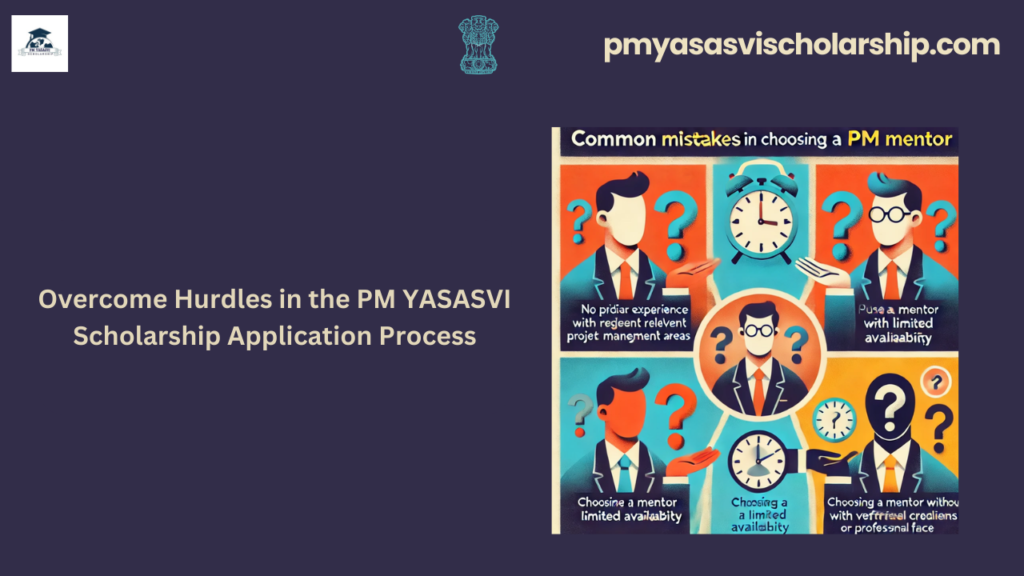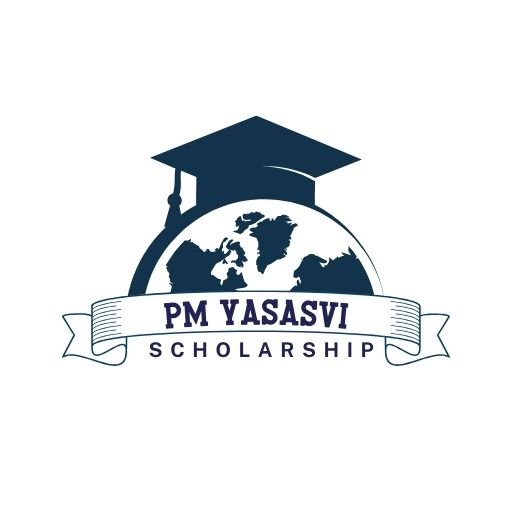Common Mistakes in Choosing a PM YASASVI Mentor
Introduction

Finding the right mentor feels like stumbling upon a hidden treasure, especially in the world of PM YASASVI scholarships! Mentorship serves as a vital lifeline that guides your academic journey and shapes your career aspirations. With the right mentor by your side, you gain invaluable insights, encouragement, and unwavering support. However, making the wrong choice can lead to confusion, misdirection, and a lot of wasted time. Let’s dive into the common mistakes in choosing a PM YASASVI mentor, so you can avoid these pitfalls and confidently embark on your journey!
Mentors play a significant role in helping scholars navigate the complexities of academic life. They offer guidance, share their experiences, and assist you in setting realistic goals. However, choosing a mentor goes beyond simply finding someone with a title or degree; it’s all about finding the right fit for you! Today, we’ll explore common mentor selection mistakes that could hinder your success and discuss how to ensure you find the perfect mentor for your PM YASASVI journey.
Understanding the Mentor-Mentee Relationship
So, what exactly is a mentor? In simple terms, a mentor serves as a guide, offering their wisdom, experience, and support to help you achieve your goals. They can be a professor, a professional in your desired field, or someone with valuable life experiences. Their role is multifaceted; they provide not only knowledge but also emotional support, networking opportunities, and constructive feedback.
For PM YASASVI scholars, having a mentor feels like having a personal cheerleader! They help you navigate the challenges that accompany academic and career pursuits, offering advice tailored to your unique situation. The benefits of this relationship are immense. You gain increased confidence, clearer pathways to success, and a supportive ally who genuinely wants to see you thrive. Therefore, it’s crucial to recognize how impactful this mentor-mentee relationship can be on your overall journey.
Common Mistakes in Choosing a PM YASASVI Mentor
Now that we have a solid understanding of mentorship, let’s dive into some common mistakes in choosing a mentor. First on the list is the dreaded lack of research. This misstep can be a huge trap that many scholars fall into! When you fail to assess a mentor’s qualifications, you risk mismatches that waste both your time and theirs. Therefore, it’s essential to dig deeper than a quick glance at their bio. Look into their experiences, educational background, and areas of expertise to make an informed choice.
Another significant error involves not considering a mentor’s actual experience in the field. Just because someone boasts impressive credentials doesn’t guarantee they will be the right fit for you. A mentor who has real-world experience in your specific area of interest can offer practical insights that can be game-changers for your journey. Thus, doing your homework is vital to ensure you don’t end up in a situation where you’re not receiving the support you need!
Read More :- Discover Mentorship: A Guide for Yasasvi Scholars
Next up is choosing based on popularity alone. We all have those “it” mentors—the ones everyone seems to buzz about. However, let’s be real: just because someone is popular doesn’t mean they will effectively meet your needs. Misunderstanding the difference between popularity and suitability can lead to disappointment. Recognizing that the right mentor for you might not be the one everyone else is flocking to is crucial.
This brings us to the potential pitfalls of following trends. Sometimes, people jump on the bandwagon and select mentors based on their social media following or accolades instead of their actual mentoring skills. Remember, popularity doesn’t always translate to the best guidance, so trust your instincts and evaluate each mentor based on your unique criteria!
Another mistake to avoid is ignoring compatibility.
The importance of personality fit cannot be overstated! If you and your mentor don’t get along or share similar values, your mentoring experience could quickly turn into a frustrating endeavor. Misalignment of goals and expectations can lead to conflicts that hinder your growth. Therefore, it’s essential to assess whether a mentor’s style resonates with you and your aspirations.
Let’s also discuss overlooking communication skills.
Effective communication serves as the backbone of a successful mentoring relationship. A mentor may possess all the experience in the world, but if they can’t convey their thoughts or listen to your concerns, the relationship can falter. Signs of poor communication styles, such as vague feedback or unresponsiveness, can signal potential issues you shouldn’t ignore.
Next, many scholars fall into the trap of setting unrealistic expectations. This mistake often arises from misconceptions about what a mentor can provide. It’s crucial to balance your desire for guidance with the understanding that a mentor is there to support you, not to solve all your problems. Establishing clear expectations can help prevent frustration and disappointment throughout your mentoring journey.
Lastly, neglecting availability and commitment can prove detrimental. A mentor’s time and dedication play a fundamental role in the mentoring relationship. If they have a packed schedule or are unwilling to commit to regular meetings, you might find yourself feeling lost. Thus, discussing a mentor’s availability upfront is key to ensuring you receive the support you truly need!
Strategies to Avoid These Mistakes
Now that we’ve identified the common pitfalls, let’s explore some effective strategies to avoid these mistakes. First and foremost, conducting thorough research is essential! Take your time to find potential mentors who align with your goals and values. Look for candidates within your field, read their publications, and seek recommendations from peers or faculty members. This groundwork will set you up for a successful mentor selection process!
Utilizing various resources can significantly aid your search. Online platforms, university networks, and professional associations often maintain directories of mentors eager to share their expertise. Don’t hesitate to reach out and ask questions before making your choice. A little effort here can lead to a fulfilling mentoring relationship!
Prioritizing compatibility proves crucial.
Identifying personal and professional compatibility will pave the way for a harmonious relationship. Spend some time engaging with potential mentors to gauge your rapport. Do you share common interests? Are your communication styles in sync? A good mentor-mentee relationship thrives on mutual respect and understanding, so choose someone you feel comfortable with!
Setting clear expectations from the outset serves as another effective strategy. Define the mentor-mentee relationship early on by outlining what you hope to achieve together. Communicating your goals and objectives ensures everyone is on the same page and can work toward a common vision.
Additionally, evaluate communication styles during your initial interactions. How does the mentor respond to your questions? Do they provide constructive feedback? Paying attention to these details will help you assess whether their style suits your needs. A successful mentorship thrives on open dialogue, so seek out mentors who foster that environment!
Finally, don’t forget to ensure availability. Discuss time commitments upfront, and plan for regular check-ins to keep the relationship active and fruitful. A dedicated mentor will prioritize your growth and make time for you, which is essential for a productive mentoring experience. By taking these steps, you can create a mentorship that truly supports your journey!
Conclusion
In conclusion, selecting the right mentor can make all the difference in your PM YASASVI scholarship journey. Recapping the common mistakes, we’ve learned that research, compatibility, communication, and setting realistic expectations are all vital components to consider. Taking the time to find the perfect mentor ensures you’ll have the support and guidance needed to thrive in your academic pursuits.
Don’t rush the selection process; reflect on what you truly want from a mentor. Each mentoring relationship is unique, and choosing wisely can lead to a wealth of opportunities and personal growth. So, take your time, trust your instincts, and don’t settle for less than what you deserve!
